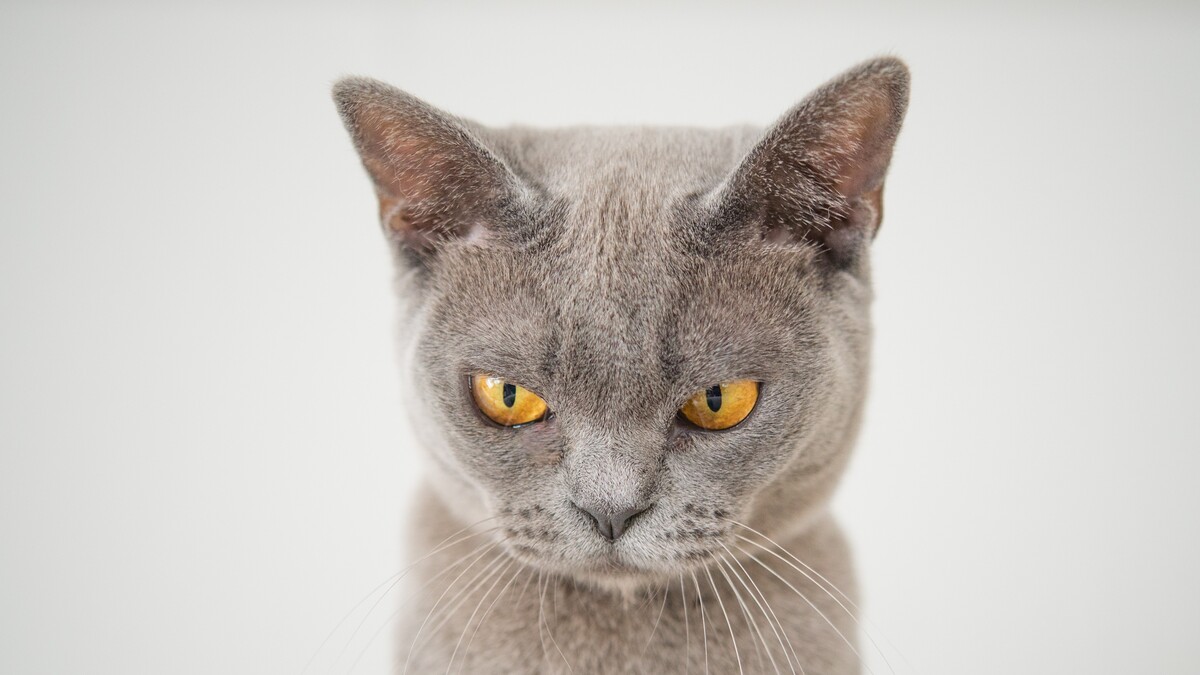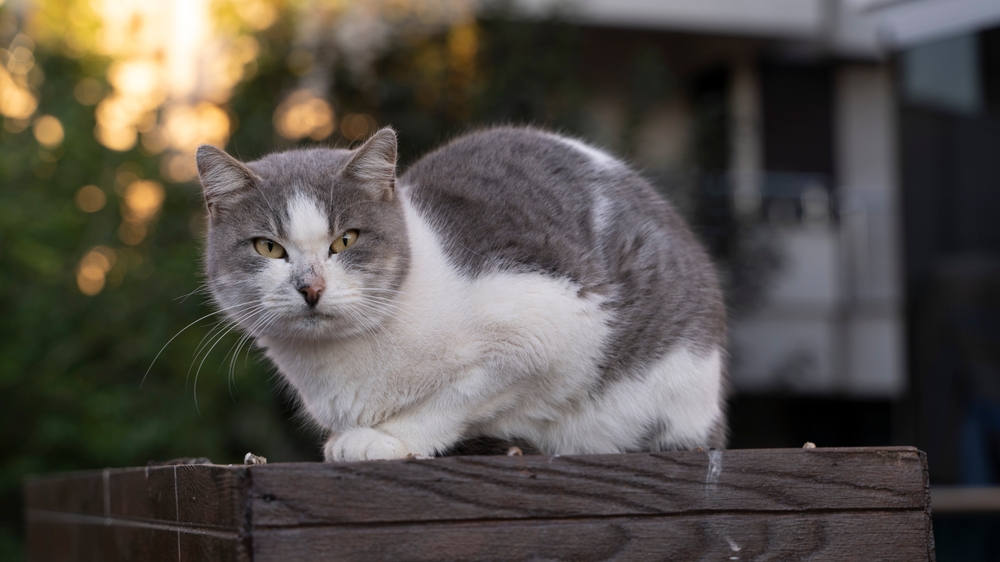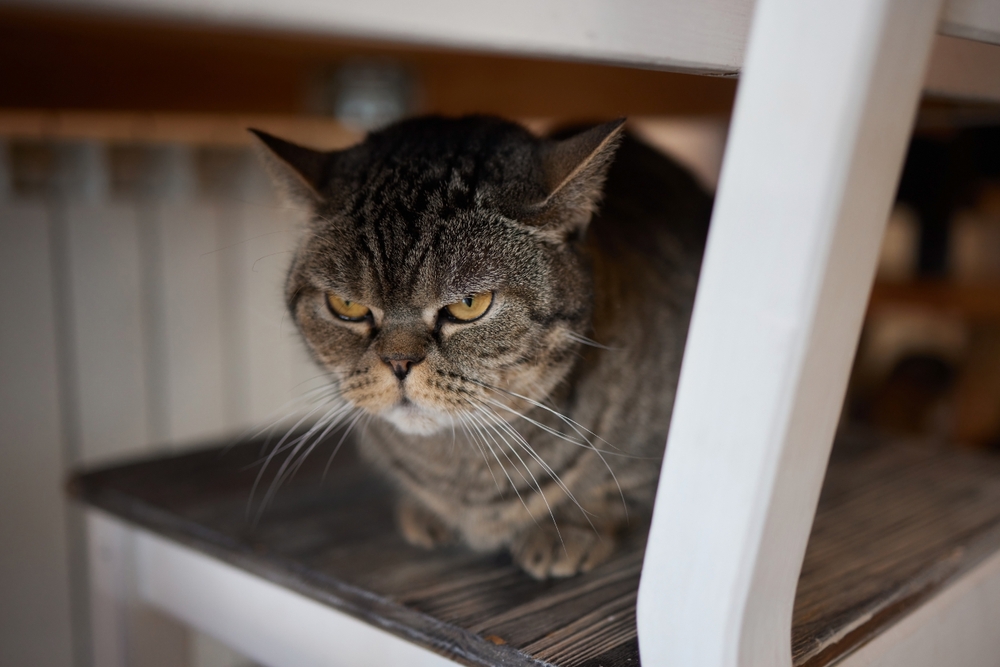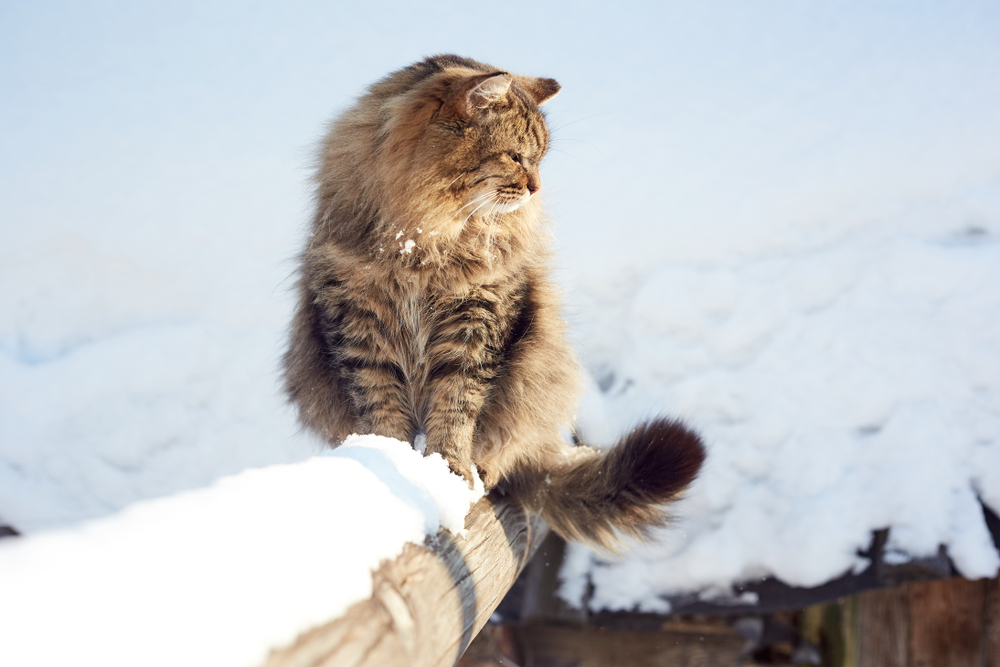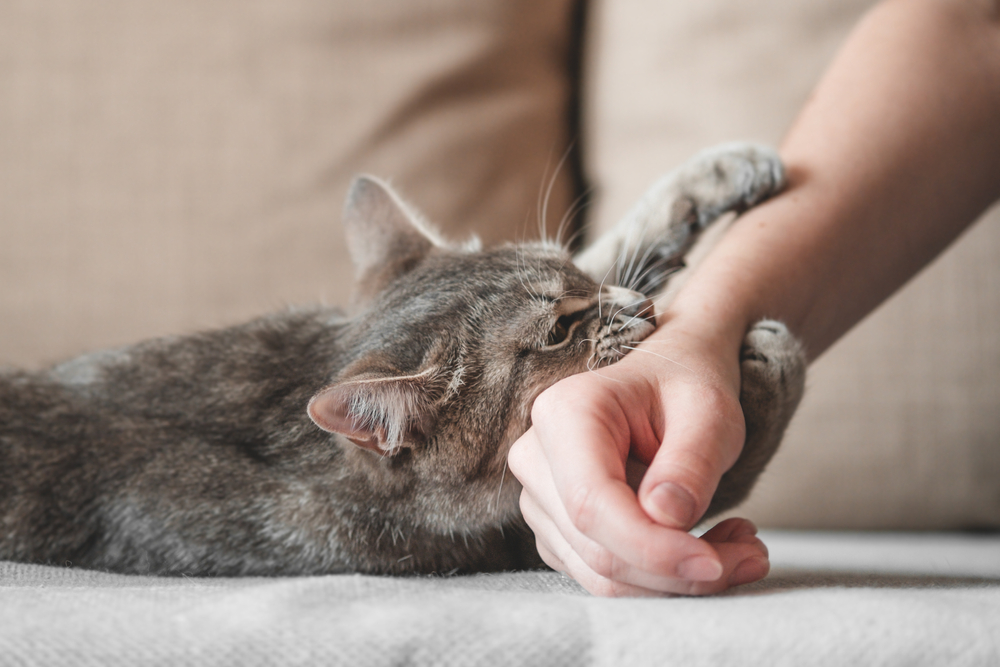📖 Table of Content:
Have you somehow made your kitty mad, and now you’re asking yourself, “How long does a cat hold a grudge?” If you can relate to this, then I want you to know you’re not alone. Welcome to the I-annoyed-my-cat club. It’s super exclusive, you’re going to love it.
We in this club are well aware that our beloved feline buddies come with a sassiness for days. We knew about it even before we let our fluffballs into our lives. And we certainly don’t mind it. But we do however mind when they decide to hold a grudge, and we’re not sure what to do about it.
Sure, a grumpy cat is a funny occurrence, and we all love to see it from time to time. But we still much prefer when our furbabies are happy, content, and affectionate towards us.
So, when we make them mad, we cannot help but wonder, “Are they really mad?” “How long are they going to stay mad?” and “What can we do to let them know we’re sorry?”
If you too have similar questions, and you want to know how long a cat holds a grudge, then keep on reading.
The mystery behind feline memory: How much does your kitty remember?
Before we determine how long a cat can hold a grudge, we first have to see what her memory is like.
Not sure if you knew this, but cats actually have an excellent memory. These fluffballs can remember someone’s face even after 10 years since the last time they saw it.
It’s true! Your kitty remembers and misses you even after a couple of months you spend away from your home.
That was my number one concern in college. I was studying in another city, miles away from my home, where my cat was waiting for me. Each time I’d plan to come home, I’d be afraid my furball wouldn’t remember who I was.
So, imagine my surprise when I learned she actually knows me and remembers me fondly! I was relieved, to say the least.
When it comes to feline memory, they are fairly similar to us in a way that they have both short and long-term memory.
Feline short-term memory span manifests itself in the way cats solve their problems, like obtaining food. For example, an outdoor cat will remember the spot where she was luckiest while hunting prey, and an indoor kitty will know the designated place her owner always gives her dinner.
Their short-term memory, often referred to as working memory, can recall events experienced and information learned up to 16 hours prior to their new “problem.” At that point, they use recollected data to solve it and store the information for future issues.
Long-term memory span in cats varies from feline to feline. As mentioned above, they are able to remember the faces of people they love, but they can also remember people and situations they’re not that fond of.
This type of memory is also extremely associative. Our feline friends are able to link positive and negative emotions to certain people and places in their life.
For example, if you have a friend who stepped on your kitty’s tail that one time she came over, be sure your kitty will remember that forever and have unpleasant memories and emotions associated with that friend of yours.
Feline long-term memory usually stems from their past, sometimes from memories dating back as far as kittenhood. If they’ve experienced certain trauma as kittens, they will surely remember them as adults. And the stronger the emotional response, the stronger the memory.
How long does a cat hold a grudge?
So, cats do grudge, but for how long?
Well, this varies from cat to cat. Every cat is different and special in her own unique way. Some need more time to get over an unpleasant event, while others don’t need as nearly as much.
It also depends on the severity of that unpleasant event. As mentioned above, the more traumatic the event is, the stronger the emotional response will follow, and consequently, the more permanent the memory will be.
So, unfortunately, there is no exact answer to your question. All I can say is be nice to your kitty, try not to cross her boundaries, and get on her bad side, and you’ll be good to go.
And to help be a little more certain about your cat’s feelings toward you, here are two lists of things your cat will (not) easily forgive you for.
Things your cat will forgive you for quickly
Lifting her up when she obviously didn’t want to be lifted. Yup, your cat doesn’t like this. She might even be afraid of this. So, if you do unexpectedly lift her up, she won’t exactly be furious with you – she’ll probably forgive you within a day.
You gave her too much attention. Yes, I know it’s hard to learn when’s the right time to show your kitty some love, but you have to remember that you simply cannot force her to cuddle.
You woke her up. Um, rude much?
You accidentally hit her. I assure you your kitty knows when your gestures and genuine and sincere. So, she knows that hit was an accident, but she has all the right to hold a grudge for a couple of hours.
You touched her belly or private parts without her permission. How dare you?
Things your cat will need a few days to forgive you for
You repeated a triggering gesture. Your cat can associate your frown, loud voice, or vigorous clap with a previously experienced abuse, and she might avoid you for a couple of days because of it.
You stepped on her tail. I know I just said that your cat understands when something is an accident, but stepping on her tail is something she has a hard time tolerating. When this happens, you need to give her some space to gain back her trust.
You punished her. One thing is certain: your kitty won’t forget you punishing her that easily. So, if you for whatever reason decide to do this (which I strongly advise against), then brace yourself for several days of living with a grumpy (and possibly vengeful) cat.
How can you tell your cat is mad at you?
Maybe I wasn’t very successful at answering your question, but I know for a fact I can help you in determining whether your cat is mad at you or not.
Our feline friends are generally very expressive, and your kitty is probably no exception. When you do something that rubs her the wrong way, her body language and vocalizations will let you know you have wronged her.
Here are some of the most common behaviors your fluffball might display when she’s mad at you.
1. The famous cat stare
Even though the sight of an angry cat can be pretty funny, it’s definitely not something you should take lightly.
If your cat is observing you from a distance, with an obvious frown on her face, you can be sure she’s mad at you for something you’ve done, and she’s guilt-tripping you with her grumpy attitude.
She can also give you the side eye (something I personally adore when my cats do!)
2. Wagging her tail
If you see your kitty wagging her tail, and you’re thinking, “Aww, look at her! So jolly and excited!” think again! These positive ranges of emotion are reserved for dog tails only.
When your cat is wagging her tail, that means she’s seriously annoyed, angry, unhappy, or sometimes even in pain.
3. Intentionally making a mess
Have you ever looked your cat dead in her beautiful feline eyes, telling her to leave that glass filled with water alone? And all the while she stares back at you, moving that same glass little by little over the edge of the table with her paw.
Yup! If your fluff suddenly starts making a mess all around your home, despite your reprimands, she’s definitely mad at you.
4. Biting
Sometimes when your cat bites you, she’s just being… well, a cat. It’s in her nature to be this wild predator, and she needs to exercise her hunting skills through playful activities with you.
However, if biting is accompanied by the abovementioned stare or tail-wagging, it’s considered an obvious sign she’s annoyed with you.
5. Avoiding you
And lastly, if your kitty is hiding from you, or immediately leaving the room once you enter, you can be sure she’s upset at you for something you’ve done (or not done).
How can you apologize to your kitty?
When you’re certain your cat is mad, it’s natural you want to reconcile as soon as pawsible.
However, forcing the matter won’t do the trick. You have to give your cat the space she needs to calm down and start trusting you again.
Cats are forgiving by nature, and she will definitely come to you if you only let her. So, my advice is to wait. Let her come to you first. And once she does, talk with her in a friendly manner. Speak gently and with a soft voice, and cuddle her only if she lets you.
The key to a successful reconciliation with any feline is patience. And of course, bucketloads of love.
